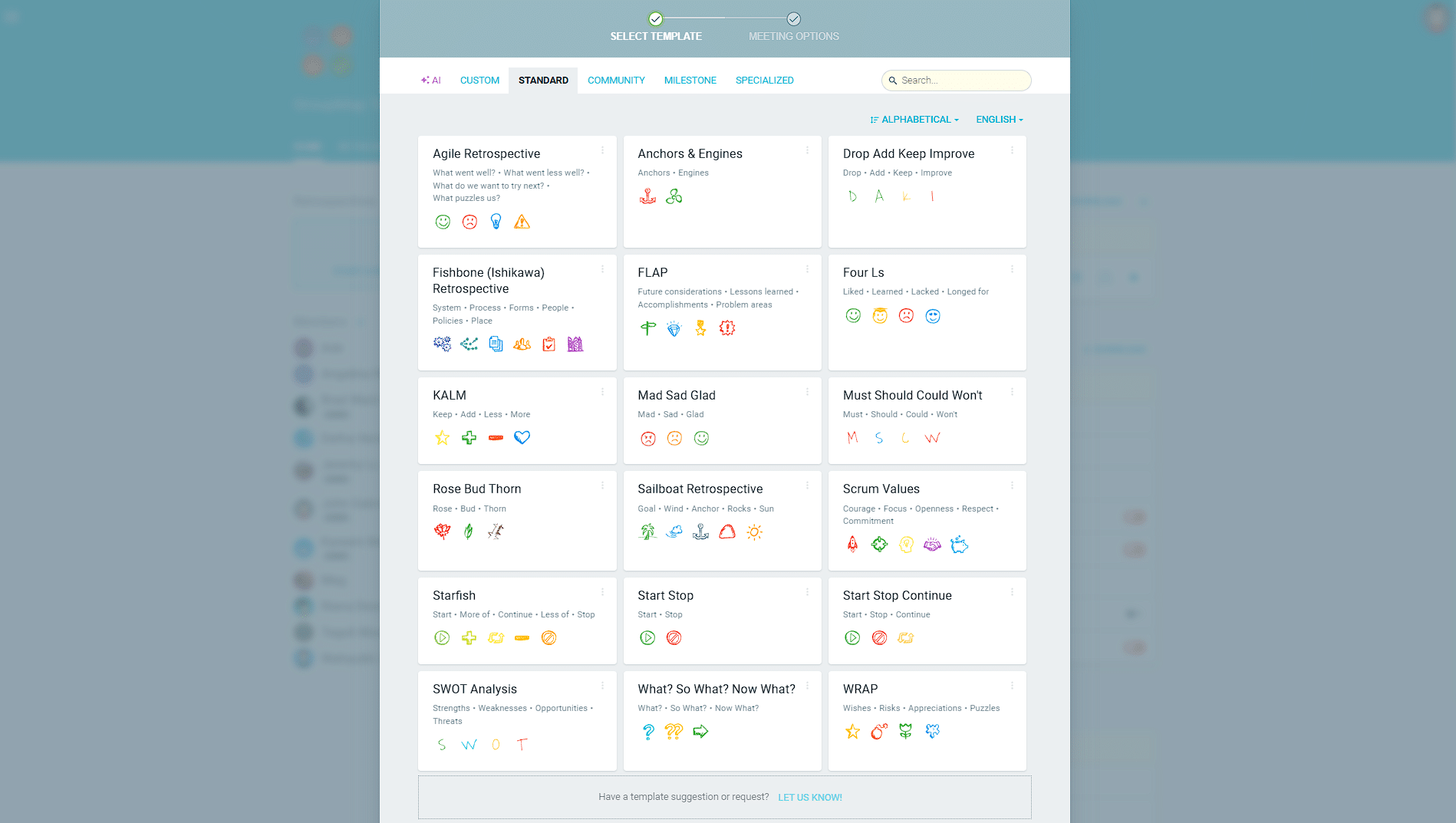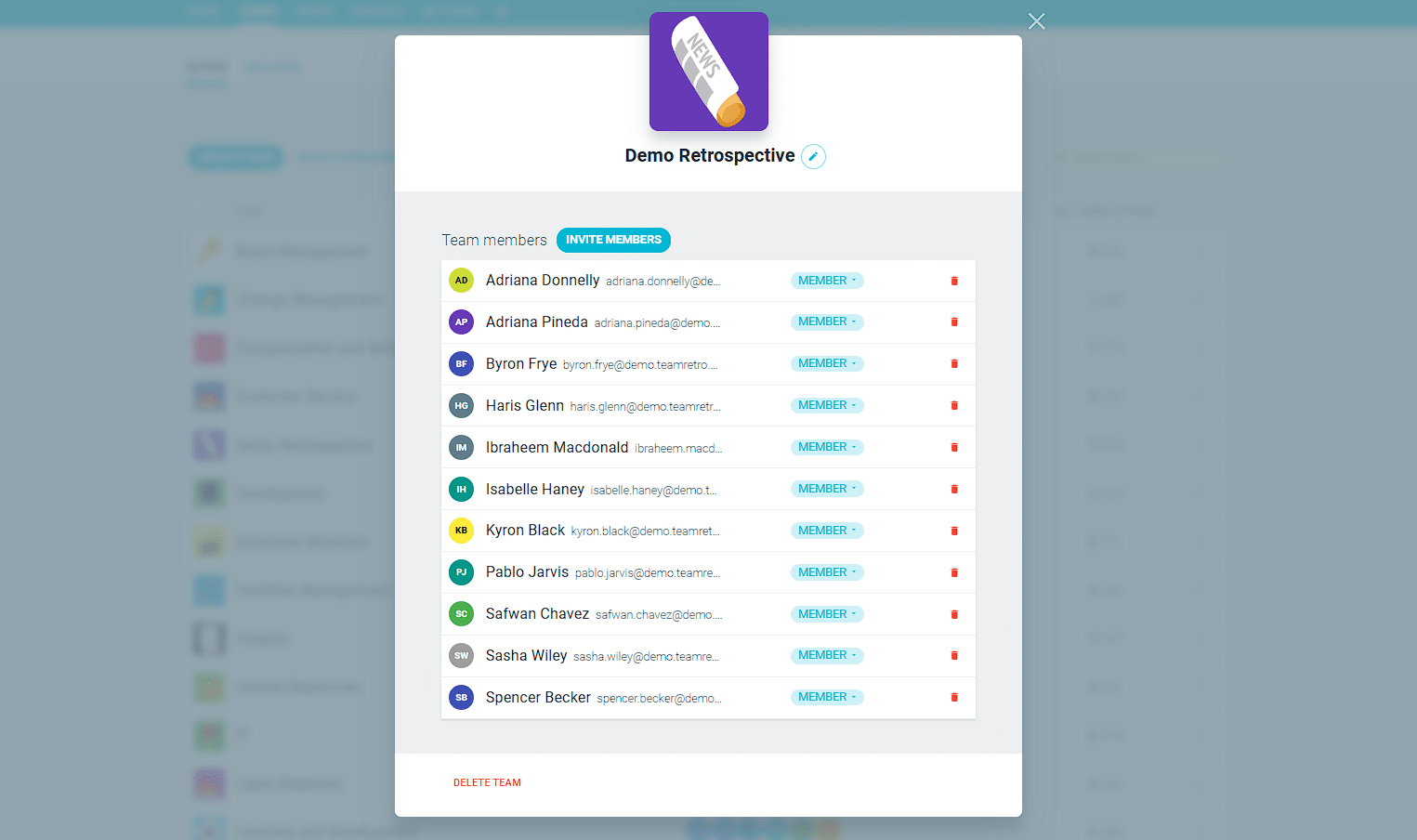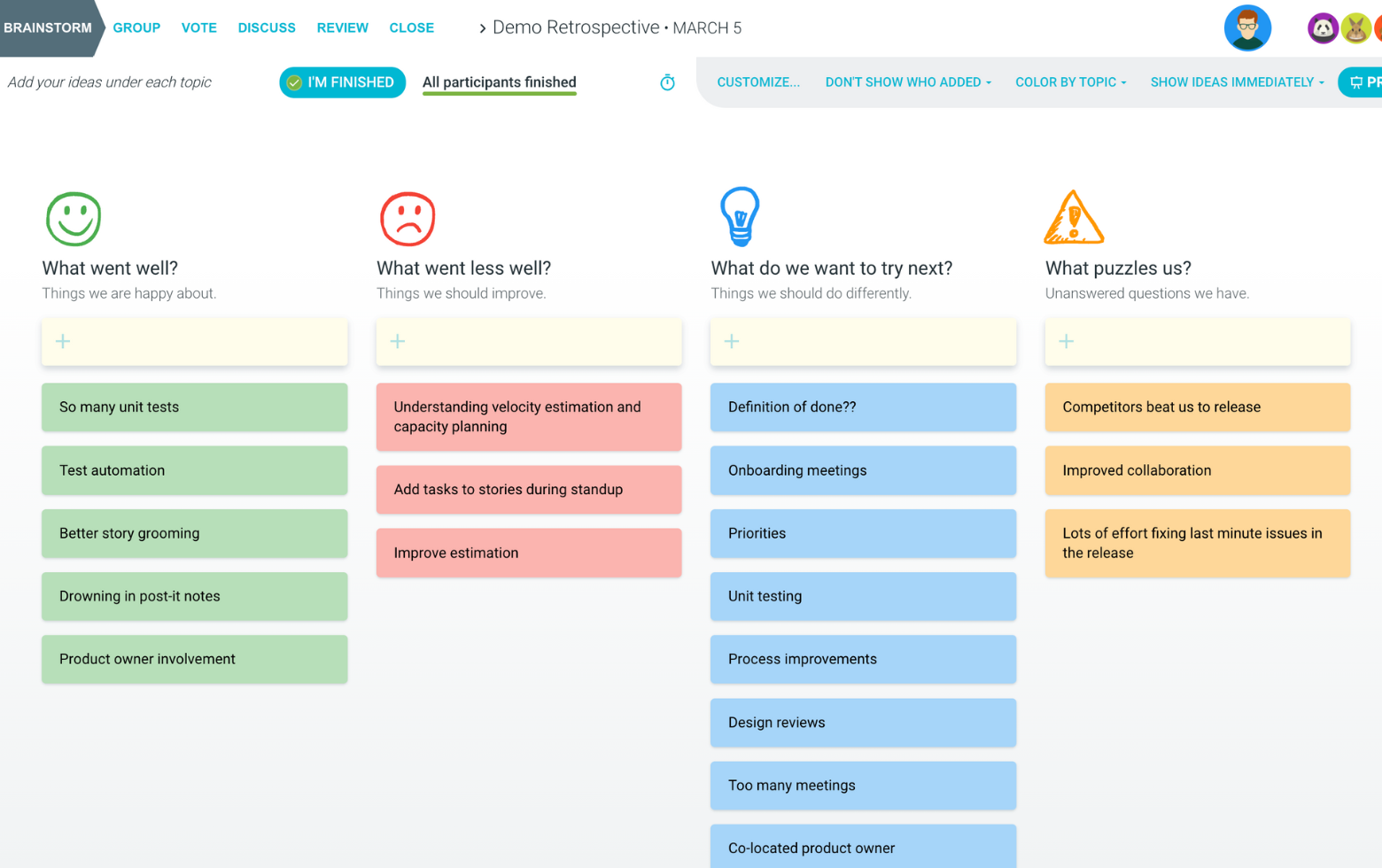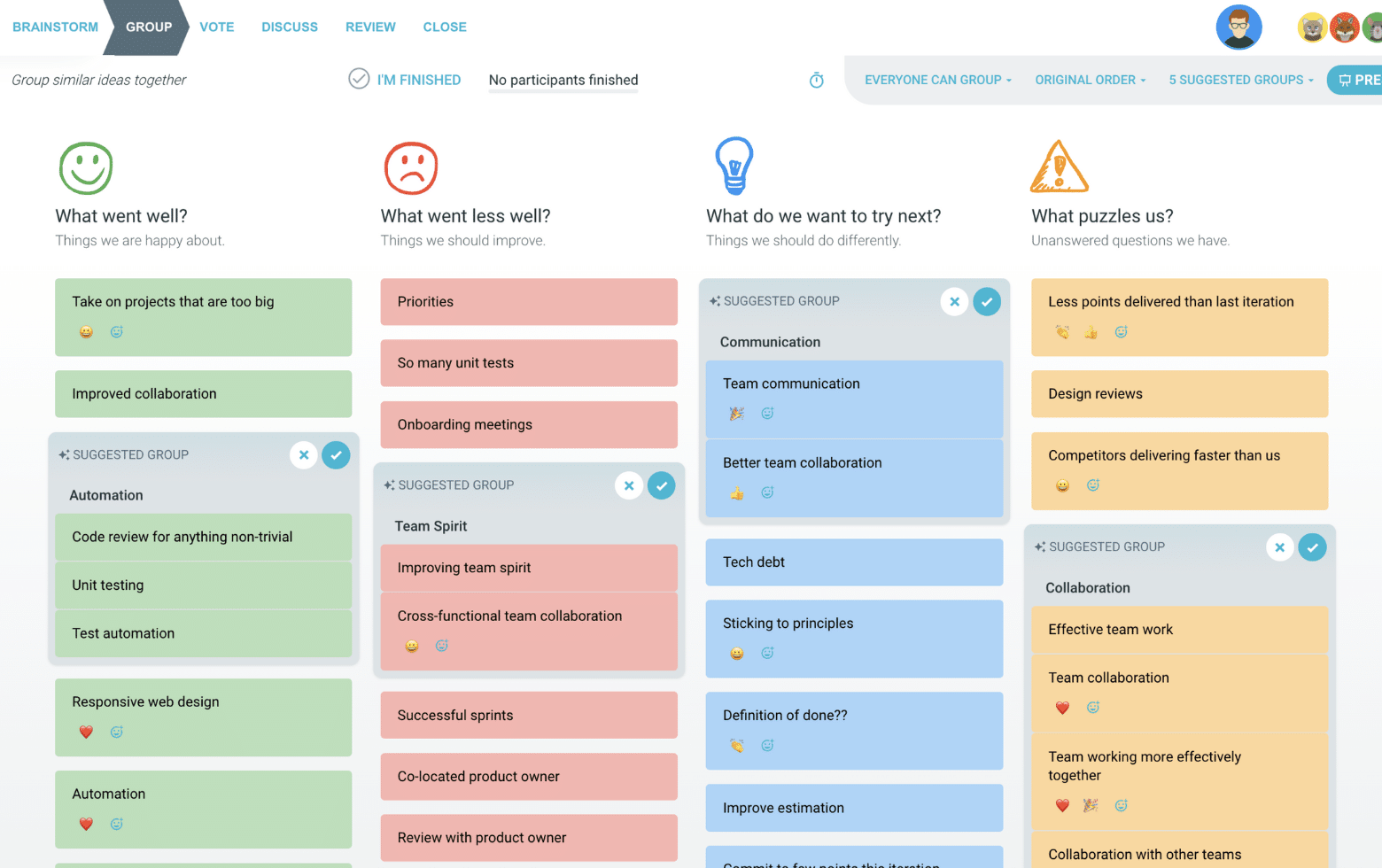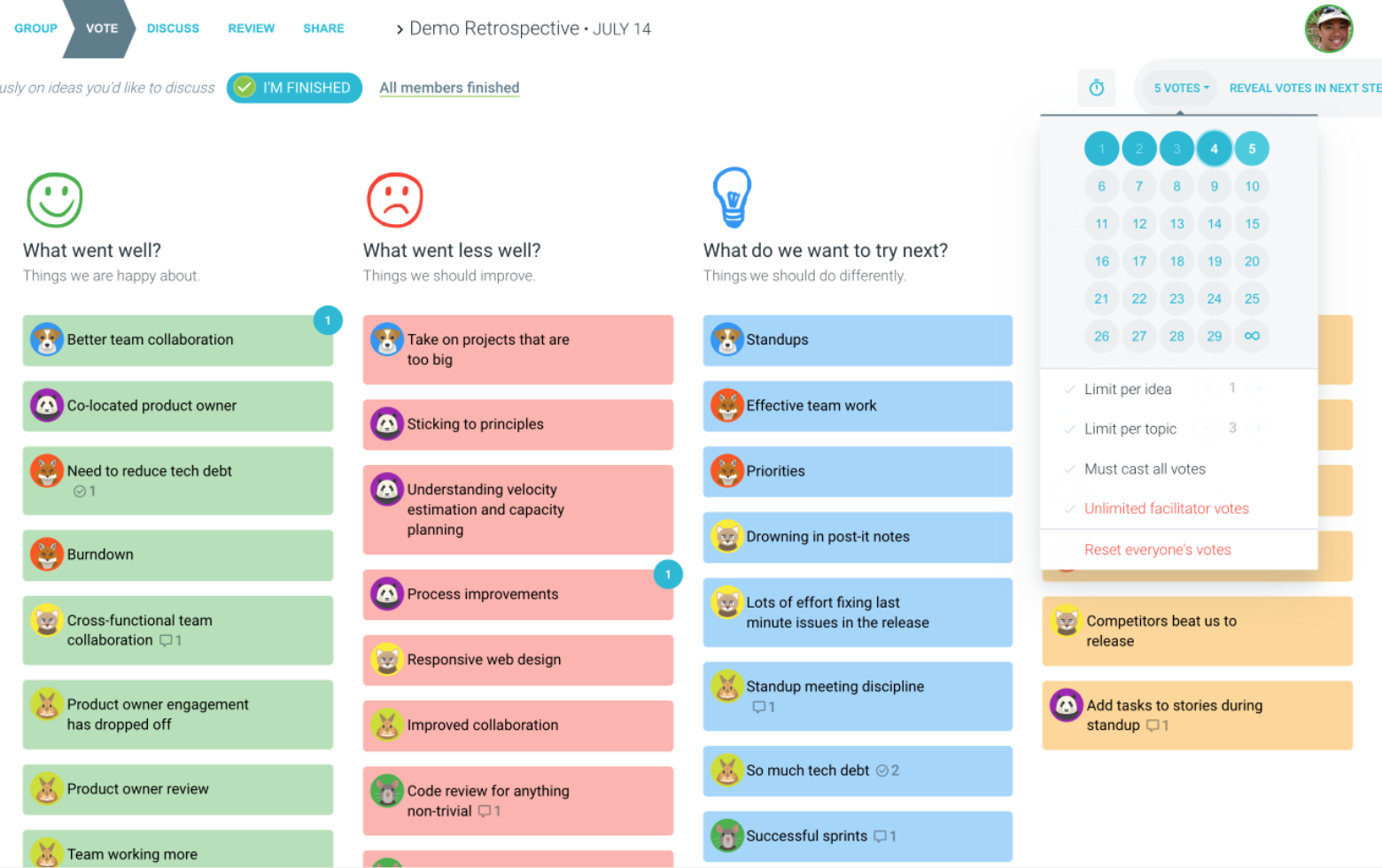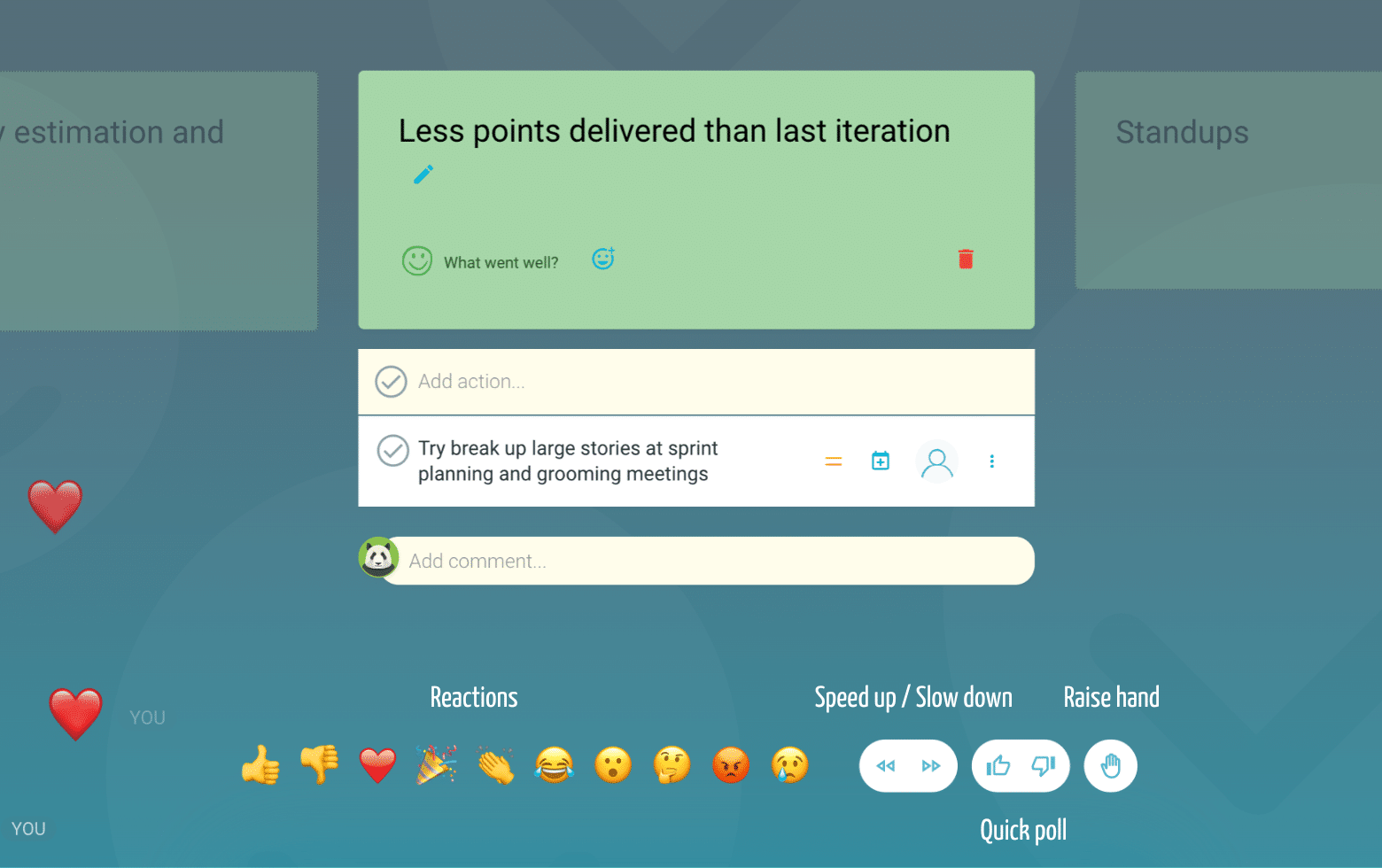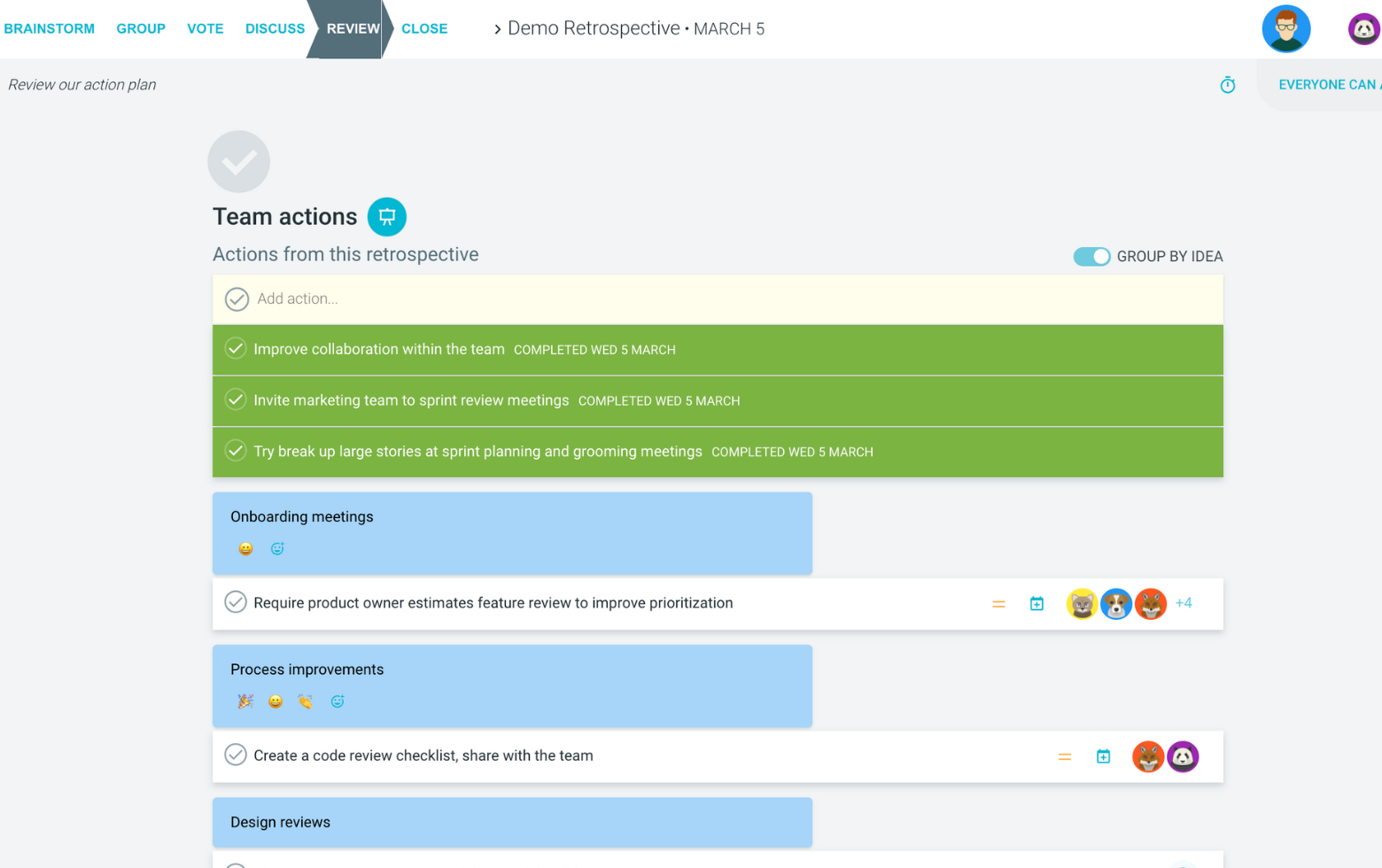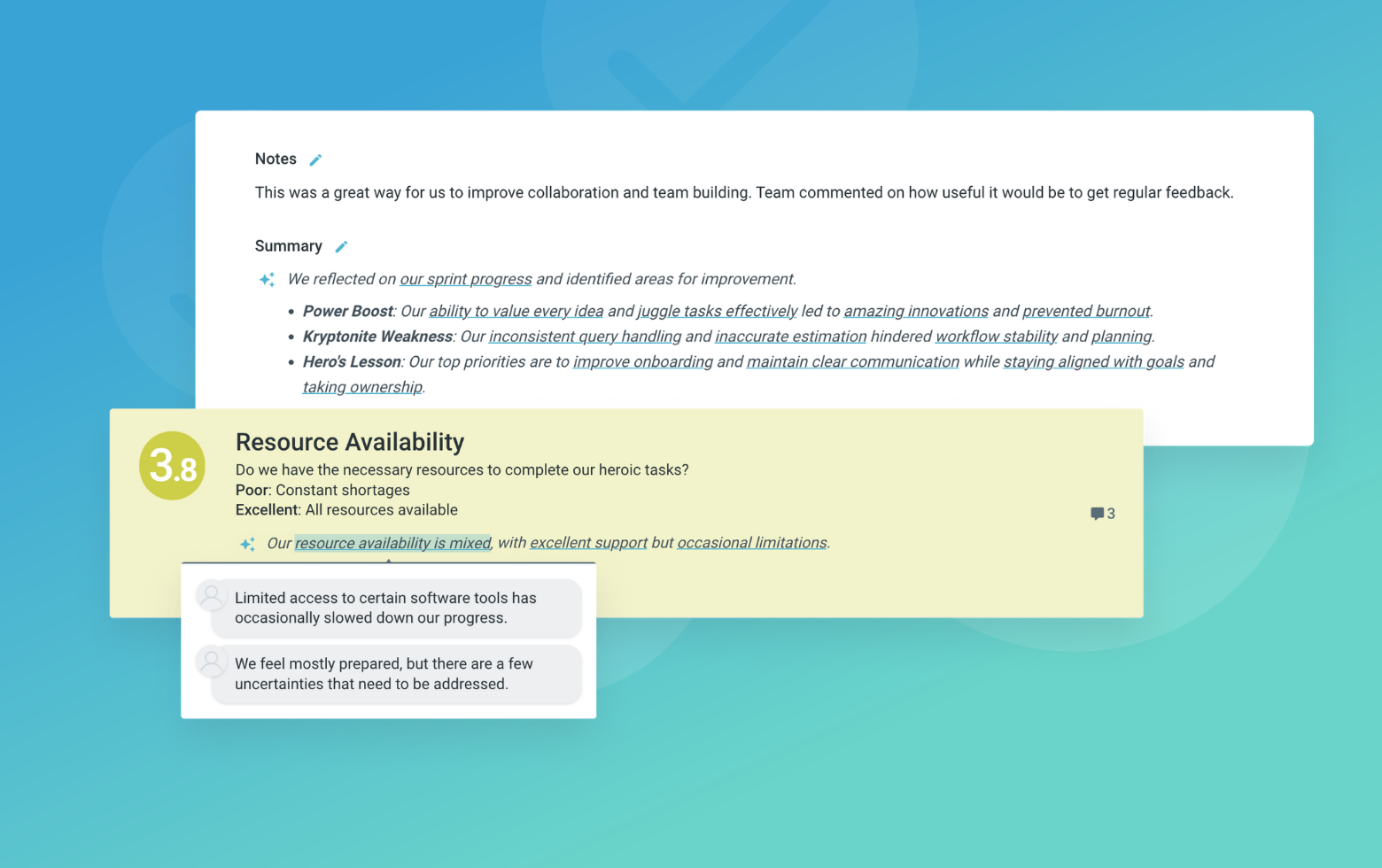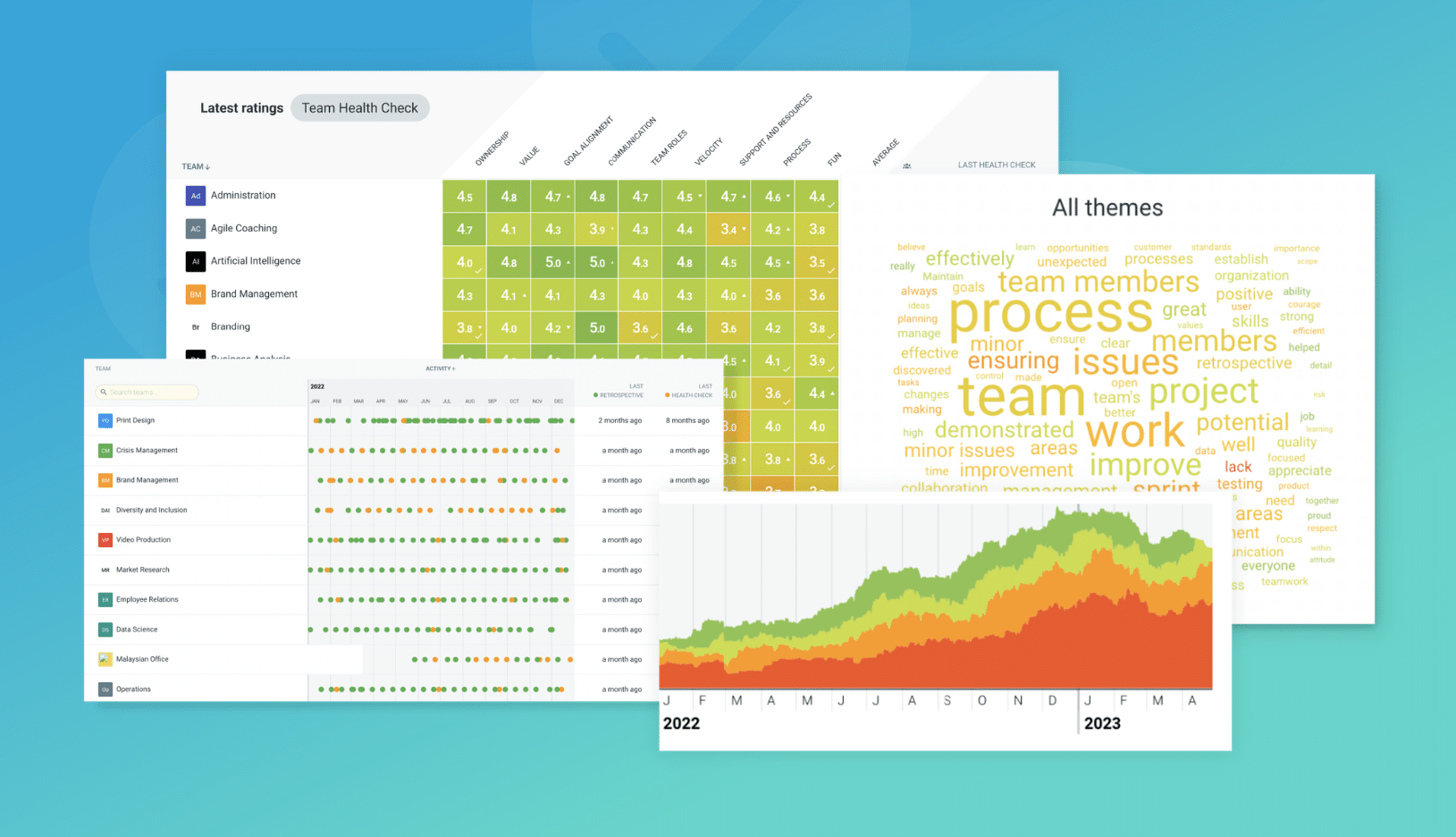What are the Seasons of the Year retrospective?
The seasons have been referenced by creatives for thousands of years in order to help support their expression of emotions.Monet’s celebration of the colour and beauty of spring was a popular theme in his paintings; Shakespeare referenced a “summer’s day” when attempting to describe the love for his beloved in a sonnet; autumnal backdrops in movies can hint at a theme of change (think “Dead Poets’ Society”, “Remember the Titans”, and “Good Will Hunting”); and “Winter is coming” was leveraged as a dire warning in Game of Thrones.
The Seasons of the Year retrospective is a way of gauging how your team felt about the various elements of the last iteration. Using the seasons as a barometer for people to share their perspective on the sprint presents participants with an agreed and therefore safe vocabulary with which to express how they feel.
Seasons of the Year retrospective format
Spring
Participants identify what is starting to grow or blossom. What ideas are starting to take hold and progress? What’s new? What has commenced? What challenges have started to thaw?
Summer
Participants are encouraged to list what sizzled or shone in the last sprint. What amazing outputs were delivered? Who went above and beyond? What made people feel warm and relaxed?
Autumn
This is a category that allows participants to share the elements of the sprint they feel may have been coming to an end. What changes were observed? Has there been a shift in the team mood? What has been cool and calm?
Winter
This is a space where participants identify elements of the sprint that are slowing. What came to an end? Did any participants have an icy perception of any element of the sprint? Where did we have to double down or take cover?
Suggested icebreaker questions for Seasons of the Year retrospective
- What’s your favourite season of the year and why?
- Which season represents how you feel right now?
- What would your ideal season be like?
Retro Rehearsal
Invite your team to rehearse the retro referencing something they would drink.
For example, in what way/s is your coffee like spring, summer, autumn or winter?
Ideas and tips for your Seasons of the Year retrospectives
-
Have people group themselves based on their favourite season of the year and ask them what they love and hate about that season.
-
Make brainstorming anonymous to allow people to feel safe when contributing their thoughts. People will feel more engaged when they feel like they can air what they need to.
-
To help kick off the ideation process, ask them to think about their top 5 activities that they did in the last sprint and add those in. They can then drag and drop them into the right column based on the work that they have been doing and how they felt it went according to each element of the season.
-
Use the way teams vote to manage culture. You’ll get interesting insights when people vote individually. Is everyone voting only for the Winter and are struggling to get out of a pessimistic view. Are conversations being spread across the board more evenly so that there is a breadth of discussion that allows everything to progress as needed.
-
A thank you goes a long way. Give a shout out to the team at the end of the meeting.
-
Follow up with an action list that you will check off at the start of the next team retro.
How to run a Seasons of the Year retrospective in TeamRetro
Start Your Session in a Click
Log into TeamRetro and choose your template. Customise questions and the workflow to create your perfect retro for your team.
Create Your Team Easily – No Separate Accounts Needed
Brainstorm Individually – Free From Bias
Smart Grouping for Faster Insights
Fair, Flexible, and Fast Voting
Engage, React, and Capture Key Insights
Walk your team through ideas one by one with Presentation Mode. Stay in sync, spark real-time discussions, and capture feedback with comments, live reactions, and polls—all in one place.
Turn Ideas Into Action
Propose next steps with team buy-in, get AI-powered action suggestions, and keep everything in one place. Committed actions sync to your personal dashboard and integrate with your workflow tools—keeping you on track.
Save, Share, and Stay on Track
Get quick AI-powered summaries, add facilitator notes, and store retrospectives in your library for easy access. Schedule your next session and track published actions to keep your team accountable at the next retro.
Turn Team Data into Actionable Insights
Uncover trends, common themes, and key engagement metrics at a glance. Track sentiment shifts, analyze conversations, and monitor completed actions to drive continuous improvement.
